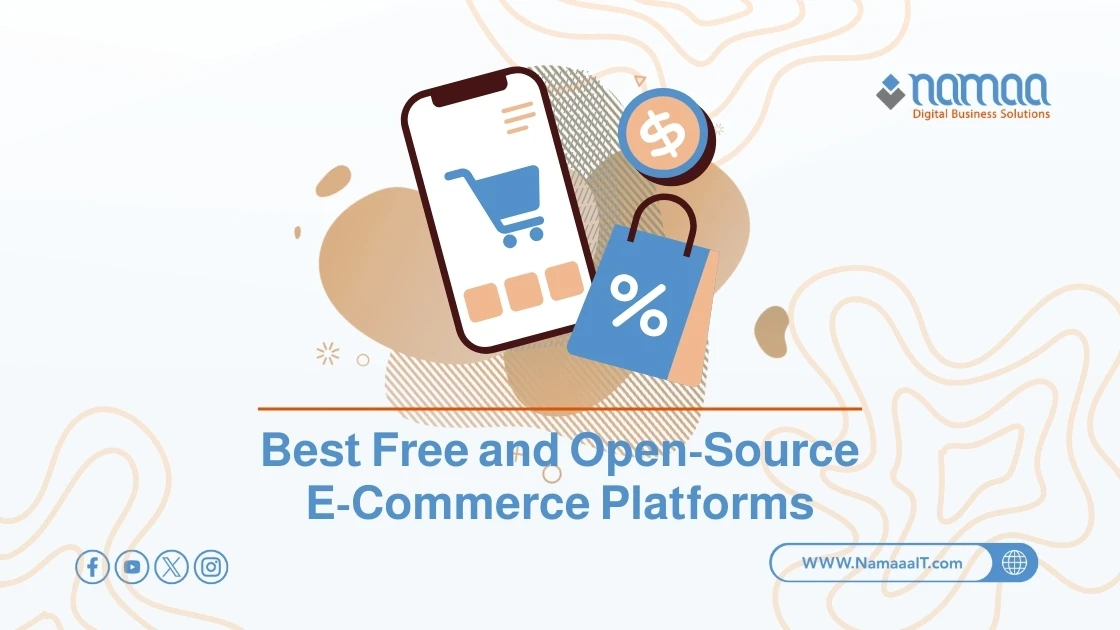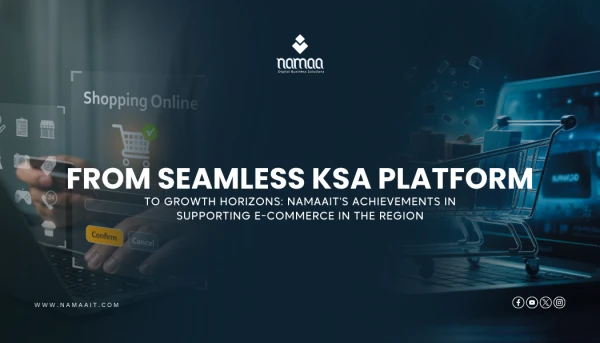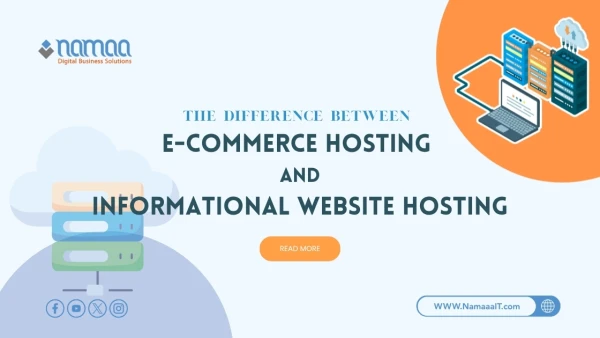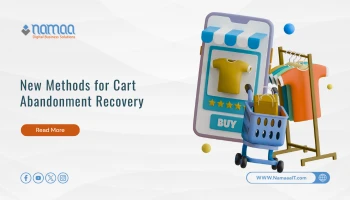In the world of e-commerce, many entrepreneurs are looking for efficient and flexible solutions to build their online stores without incurring high costs. This is where the importance of the best free and open-source e-commerce platforms comes in—platforms that give users full freedom to customize and control their stores. Among the most important platforms are WooCommerce, which integrates with WordPress; Magento, ideal for large-scale projects; and PrestaShop, known for its ease of use. One cannot overlook PolarisMAX, a platform gaining popularity thanks to its simplified interface and advanced developer support. These tools offer project owners the chance to launch professional stores without financial constraints and with real growth potential.
What’s the Difference Between Free and Open-Source E-Commerce Platforms?
The terms "free" and "open-source" are often confused, but there’s a fundamental difference in the e-commerce world. A free platform means you can use it without paying a license fee, but it’s not necessarily open-source. On the other hand, an open-source platform gives you full access to the source code, allowing complete freedom in editing and customization, whether the platform itself is free or paid.
Some platforms, like WooCommerce and PrestaShop, are both free and open-source, making them a popular choice. Others, like Ecwid's free plan, are free but closed-source, placing limits on customization or product numbers. Open-source platforms give developers full control over design, features, and even security, while free-only platforms often come with limited default settings and restricted modification capabilities.
In short, "free" means no initial cost, while "open-source" means full customization. Many entrepreneurs opt for platforms that combine both to get the most benefit at the lowest cost, but understanding the distinction is crucial to choosing what fits your project’s nature, your technical skills, and long-term budget.
Why Choose an Open-Source Platform for Your E-Commerce Store?
Choosing an open-source platform to build your online store gives you unmatched flexibility. You control everything—from how products are displayed to payment methods, shipping options, and the overall design. Unlike ready-made platforms that lock you into specific settings, open-source solutions give you complete customization freedom. This is especially valuable for projects that need unique solutions or unconventional selling processes.
Another key benefit is independence. With closed platforms, you might face surprise fees or changes to usage terms. But with open-source, you own all your store’s files and can move, edit, or develop them however you like—without legal or technical restrictions.
Open-source platforms also have thriving communities. You’ll find thousands of developers and users sharing plugins, solutions, and tutorials. Updates usually come quickly from the community and can be tailored to your specific needs.
Yes, open-source solutions require more technical expertise—or at least a trusted developer—but they offer independence and flexibility in the long run. If you’re planning a serious, scalable, and sustainable business, open-source is the smart choice.
Pros and Cons of Using Free E-Commerce Platforms
Free platforms may seem like the perfect choice for starting an online store—especially if your budget is tight. They let you build and operate your store without paying monthly subscription fees or expensive licenses. Popular examples include WooCommerce and PrestaShop, which provide powerful tools to create a professional store at virtually zero software cost.
The most obvious advantage is reduced costs, allowing small business owners to enter the market with minimal financial risk. Many of these platforms also have massive, free support communities and plugin libraries to expand functionality as needed.
However, that doesn’t mean they’re challenge-free. These platforms often require private hosting, which can become costly if your site receives high traffic. Setup and customization may also require technical knowledge, meaning you might need to hire a developer. Key features like advanced payment gateways or smart shipping tools may be paid, gradually increasing the overall cost.
Free platforms are excellent as a starting point, but they demand solid planning and a clear understanding of their limitations. It's important to balance cost and features to ensure your store meets your long-term goals without surprises.
read more: Digital Marketing and Search Engine Optimization
PolarisMAX Platform
PolarisMAX, by Namaa Information Technology Solutions, is an ideal choice for those looking for an e-commerce platform that combines simplicity with flexibility. Designed to provide a comprehensive experience, PolarisMAX supports launching a web store and mobile apps simultaneously, allowing customers to shop from any device with ease.
PolarisMAX stands out with a user-friendly interface that enables store owners to manage products and customer orders without needing advanced technical skills. It also offers powerful marketing tools, including integration with digital marketing and SEO tools, helping to boost visibility and attract more customers.
From a security perspective, PolarisMAX uses the latest encryption protocols to protect customer data and financial transactions. It supports features like two-factor authentication and real-time alerts. The platform also supports various payment methods, including credit cards, digital wallets, and cash on delivery—to suit different customer preferences.
Additionally, PolarisMAX offers an advanced reporting and analytics system, allowing store owners to monitor their performance and make informed decisions based on accurate data. It’s built for easy scalability, making it a great choice for businesses aiming to grow and expand into new markets.
In summary, PolarisMAX delivers an all-in-one e-commerce solution with ease of use, flexibility, security, and rapid store launch—making it a top pick for business owners seeking a successful and sustainable online store.
WooCommerce Platform
WooCommerce is the natural extension for WordPress sites looking to enter the e-commerce world. Developed as a plugin, it turns any WordPress website into a fully functional online store. What makes WooCommerce ideal is its seamless integration with WordPress—a platform already familiar to many users—making the store-building experience quick and easy without needing to learn a new system.
It’s completely free in its core version and offers powerful features like product management, order tracking, shipping options, and taxes. Almost everything is customizable through a vast collection of themes and plugins, allowing store owners to create a unique experience tailored to their brand.
One of WooCommerce’s biggest strengths is its high flexibility. Whether you sell physical products, digital goods, or services, you can adapt the store to meet your needs. There are also free and paid plugins for payment gateways, global shipping support, inventory management, and sales analytics.
However, WooCommerce does require good hosting to ensure stable performance—especially as traffic and orders increase. While the basic setup is simple, adding more advanced functionality might require technical expertise or a skilled developer.
Overall, WooCommerce is the perfect solution for anyone with a WordPress site looking to quickly and affordably jump into e-commerce.
➡️ Check also: PolarisMAX vs Shopify vs Zid: Which Platform Suits Your Saudi Brand?
Magento Platform
Magento is an open-source e-commerce management system designed specifically for large and complex projects. Now developed by Adobe, Magento is known for its high level of customization and full support for advanced business operations—making it ideal for enterprises requiring high performance and precise store control.
The platform supports thousands of products, multi-channel selling, and stores in different languages and currencies—all from a single dashboard. That’s why it’s a favorite for international businesses or brands with diverse product lines. Magento also provides powerful marketing tools, detailed reports, SEO support, and a customer management system that gives merchants deep insight into buying behavior and market needs.
From a security standpoint, Magento adheres to the highest protection standards and offers advanced tools to prevent fraud and safeguard data. It also integrates widely with global payment gateways and logistics services, streamlining business operations.
Despite all these advantages, there are challenges. Magento requires powerful servers and significant hosting resources. It also needs a skilled technical team familiar with its architecture. Development and maintenance costs can be relatively high, making it less suitable for small or beginner businesses.
PrestaShop Platform
PrestaShop offers a great middle ground for those looking for an e-commerce platform that balances ease of use with diverse capabilities. Developed as an open-source project, it’s free in its core version, making it ideal for small and medium-sized business owners who want full control of their stores without major technical complications.
The PrestaShop admin interface is clear and user-friendly, allowing easy management of products, customers, orders, and shipping. It also provides broad customization options via ready-made themes and plugins—many of which are free or affordable. One of its top features is Arabic language support and multi-currency compatibility, making it attractive for merchants in the Middle East.
It also includes strong marketing tools like coupons, email campaign management, and social media integration. Technically, PrestaShop is flexible; it can be installed on any hosting provider that supports PHP and MySQL, giving users full freedom in choosing their work environment.
However, when expanding your store, you may face some challenges. Some essential plugins are paid, and you may need a professional developer to modify core features or add custom functionalities. Performance can also be affected if the hosting isn’t strong enough.
Still, PrestaShop remains a smart choice for building a full-featured e-commerce store without overly complex technical requirements and with future scalability in mind.
Summary
✅ Over 40% of global e-commerce stores use WooCommerce thanks to its smooth WordPress integration and free availability.
✅ Magento powers stores for major companies, supports over 250,000 global stores, and is known for robust performance and scalability.
✅ PrestaShop runs more than 300,000 online stores, combining ease of use with multi-language and multi-currency support—perfect for Arab markets.
✅ PolarisMAX enables launching a website and mobile app together and provides a flexible interface with advanced analytics and reporting.
✅ Free and open-source platforms can reduce costs by up to 70% compared to paid solutions—but they require technical knowledge or specialized support.









